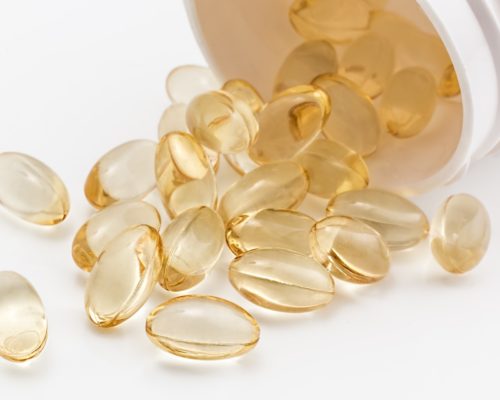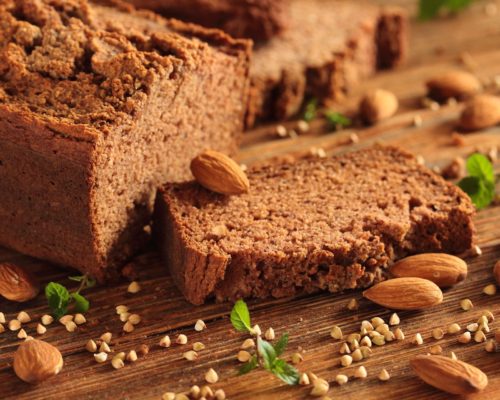Fertility is the ability to produce offspring. Infertility is the failure to achieve pregnancy after one year of unprotected intercourse, and it affects approximately 10-15% of reproductive-aged couples. Boosting fertility in men is one way to help increase the odds of having children.
Infertility can have many causes. Scientists estimate that, of the couples who deal with infertility, 35% of cases are due to female factors alone, whereas 30% are due to male factors alone. It is further estimated that 20% of these cases are due to a combination of female and male factors, and 15% remain “unexplained.” Male factors are generally harder to treat, as a considerable percentage of cases are attributed to genetic defects.
The Science Behind Fertility Obstacles in Men
In practice, fertility hurdles are classified as primary and secondary. A primary hurdle means that the woman has never achieved pregnancy, and has not had an abortion. This class is related to the basic requirements of fertility and thus requires investigation.
A secondary hurdle is when the couple has had children, but cannot have more. Secondary hurdles are easier to handle, but their causes can be difficult or impossible to find.
What Causes Infertility?
A male’s fertility relies on the quality and quantity of his sperm. In other words, decreased fertility is due to one or more defects in the process of sperm formation, maturation, transportation, or fertilization. Classifying these fertility obstacles allows medical personnel to sort out underlying causes. It also helps to devise treatments targeted for each individual case.
Studies show that sperm quantity may decrease as a man ages. For instance, 90% of young men have sperm in the fine testes tubes. However, this is a figure that continues to decline to 50% by the age of 60, and then drops sharply to 10% by the age of 80.
The universal quality and quantity of semen are also declining as decades go by. The average semen parameters of a man in the 1940s were fairly healthier than current averages. This decline has been ascribed to numerous environmental and lifestyle changes. Many fertility experts believe that malicious cosmic radiation has a negative impact on men’s fertility potential.
Other potential causes include the growth of fast food and sugary drinks and the rising cost of a healthy diet. The modern food market focuses mostly on mass production. For this reason, it’s unsurprising that a lot of today’s food is either boosted by hormones or genetically modified. On top of that, the canned food industry uses plenty of additives, including preservatives, food colorants, and artificial flavors. All of these factors can contribute to the universal decline of semen quality.
You May Also Like: 9 Healthy Ways to Improve Your Prostate Health

Boosting Fertility in Men: Bad Habits to Break
Infertile men tend to have several features in common. So, what are the best methods for boosting fertility in men? In order to boost fertility rates, there are some things men should avoid:
1. Smoking and high levels of alcohol and caffeine
Excessive smoking can reduce fertility. Studies show that smoking 20 cigarettes a day can lessen the motility of sperm tails.
Drinking too much coffee or alcohol can also harm fertility. If your spouse downs a lot of brewed coffee, the odds of getting pregnant will decrease by 50%, compared to a spouse who doesn’t drink caffeine. Drunkenness leads to poor sperm quality, poor libido, and impotence. It damages the liver and disturbs male hormone functions.
2. Obesity
Obese men experience difficulty in sexual performance. This reflects negatively on fertility odds. Infertile men have a significantly higher body mass index (BMI) than the general population. Researchers revealed that the odds of infertility increase by 10% for every 9 kg (20 pounds) a man is overweight.
3· Using the wrong sexual lubricants
Spermicide lubricants—lubricants that contain sperm-killing chemicals—come in different forms: creams, gels, douches, foam baths, and suppositories. They are intended to act as a form of birth control. However, using the wrong lubricants can lessen the odds of pregnancy. A couple seeking to have a child should use sperm-friendly or non-spermicidal lubricants instead.
4. Using anabolic steroids
Many bodybuilders use male hormones like testosterone to beef up their muscles. A common side effect of hormone usage is long-term infertility. Supplementary athletic hormones work on increasing and improving muscle, but they do not benefit the testes. On the contrary, they suppress the natural hormones produced by the testes, creating a lack of natural testosterone.
5. Other unhealthy habits
Many other environmental or physical factors affect fertility. These include stress from work and psychological stresses. Other activities that may increase the odds of infertility include: wearing boxer shorts, resting devices on your lap for extended periods of time, indulging in sauna baths, working close to a heat source like an oven, and many more. These factors could harm your fertility and should be avoided by couples attempting pregnancy.
In Conclusion
Boosting male fertility involves a conscious decision to live a healthy and natural lifestyle. In this way, one can decrease the risk of avoidable infertility. A fertility-friendly lifestyle requires adequate sleep, a balanced diet, and stress-relief therapy. In addition, one should also cut out any of the unhealthy habits we’ve mentioned above.
When it comes to boosting fertility in men, consulting a fertility specialist would also be a good idea. Specialists can determine whether your infertility stems from avoidable or unavoidable causes, such as varicocele. The latter can then be treated with prescribed fertility enhancers, necessary surgery, artificial insemination, in vitro fertilization (IVF), or sperm donation.




